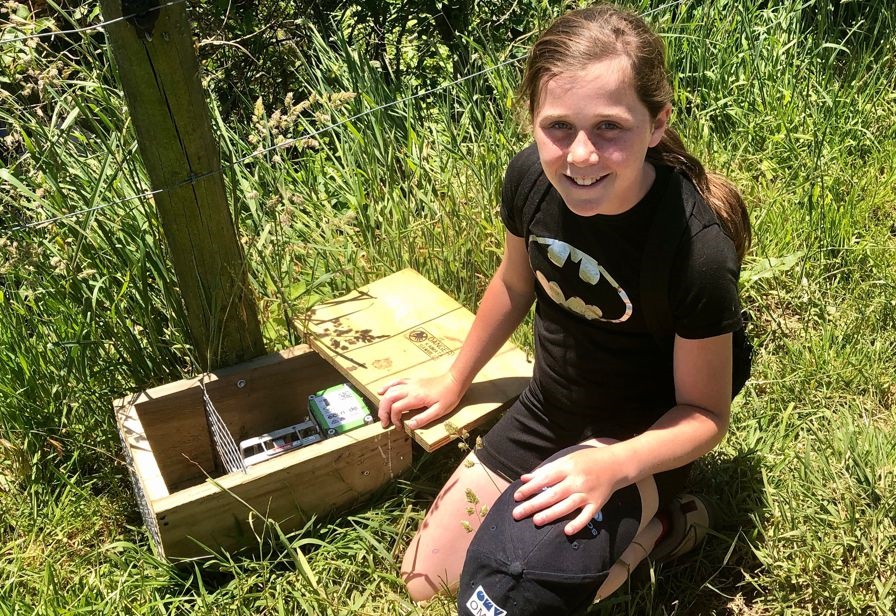Twelve-year-old Monica Joyce’s love of native birds is infectious.

Monica's love of wildlife motivates her to trap
The Omata School student is passionate and steadfast in her determination to protect her favourites - kereru, kotare (king fisher) and tūī – from being killed by rats, possums and stoats, which threaten to wipe out New Zealand’s native birdlife.
Monica is leading trapping efforts at her school and on her family’s Omata dairy farm. She’s encouraging other Taranaki residents to help by also trapping on their property.
The frustration in her voice is evident when asked what she thinks about people who don’t trap in their backyard.
“People need to realise, we might lose more of these beautiful birds. Do they want to be responsible for being the generation that let some of our birds become extinct?,” she asks, imploring residents to get behind Towards Predator-Free Taranaki – the long-term project restoring native wildlife and plants on urban, rural and conservation land.
“I don’t always catch something, but what keeps me motivated is if we don’t do something then we will lose these birds,” Monica says.
“It’s up to our generation to keep going with the work the older generation has started. I don’t want to see it all just disappear. We can keep our birds, but if people let the predators keep going then these birds won’t be around anymore – I think our wildlife is really important to New Zealand, it’s part of what makes New Zealand.”
Monica and her siblings, Annabelle, 13, Leo, 10, Jenna, 8, Luke, 6, and Jacob, 4, check the traps by their dairy shed twice every day and at least once a week for the traps further away on the farm – parents Terry and Rochelle are happy for the kids to take charge.
Since starting trapping they’ve seen a lot more birds than before, particularly tui and pīwakawaka (fantail).
“A couple of days ago we were walking to the house when I saw eight kereru in a tree. There were eight of them just sitting there, with one or two fantails hanging around,” she says.
Listening to Monica, It’s obvious why Omata School won a Taranaki Environmental Award 2019 for inspiring students to be guardians of their local environment and restore native habitat.
Would you like to start or expand trapping in your New Plymouth backyard or farm? See how you can get a subsidised trap from Taranaki Regional Council here: www.trc.govt.nz/pf-taranaki2050/